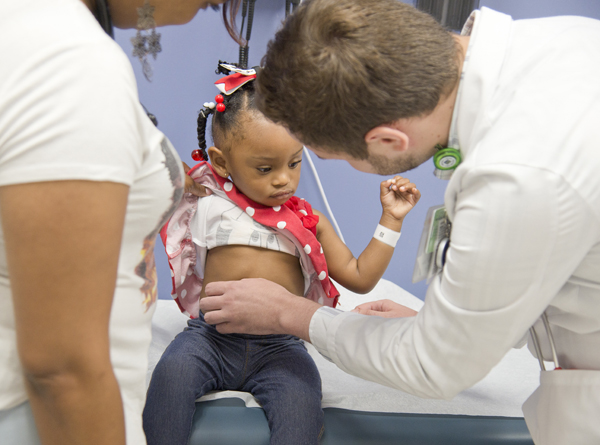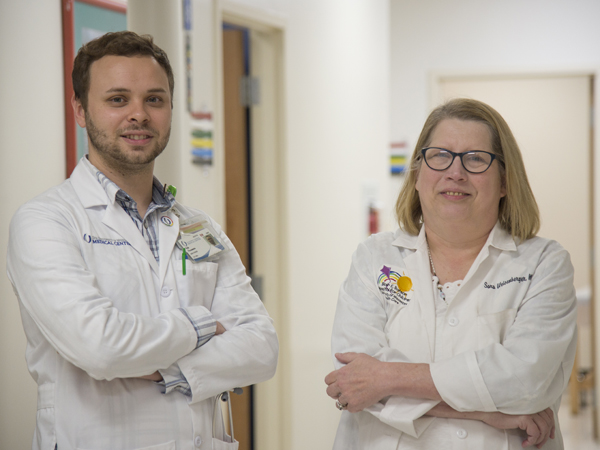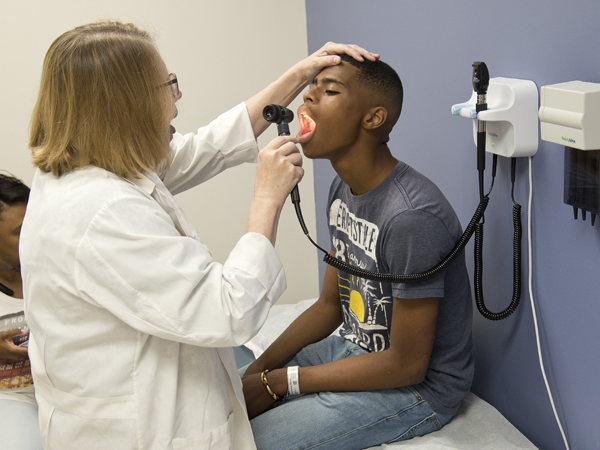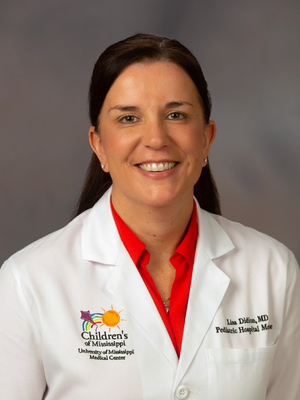New pediatric clinic: Simple solution to coordinate complex cases

Parents juggling multiple medical appointments for a child seeing several subspecialists get hit with needs of other family members, job demands and, for some, the challenges of making a lengthy trip to Jackson if home is hours away.
Doctors have no-show appointment rates as high as 25 percent, taking up time in which other patients could be seen.
Meanwhile, children with medically complex conditions wind up in the emergency room for worsened conditions that could have been treated earlier in an office visit or for maladies such as eczema that aren't serious and could be treated in a clinic.
A new Children's of Mississippi clinic is trying to solve these problems by assisting families with children who have either three or more major diseases or disabilities or three or more subspecialists on their care team.
Opened June 13, the Complex Care Clinic is housed at the Jackson Medical Mall, said Dr. Sara Weisenberger, who moved to the clinic from her current practice at the Children's North Clinic off I-55 in northeast Jackson. A second pediatrician will be hired for the new clinic, and it will also be staffed with a social worker and a nutritionist. Adding a psychologist to the staff is a later goal, and UMMC's telehealth program will help with outreach.
“We are using a model that's loosely based on studies on coordinated care and case management that have been published nationally,” Weisenberger said.

Some conditions lend themselves to complexity when it comes to scheduling appointments, said Dr. John Purvis, associate professor of pediatric orthopedic surgery and lead physician in the UMMC Office of Physician Relations. For example, a child with spina bifida might be seeing a neurologist, an orthopedist, a urologist and a physical therapist in addition to a social worker.
“The model of multi-specialty care can be an ideal one for patients,” said Purvis. “It's coordinated care.”
Dr. Wade Shrader, professor of pediatric orthopedic surgery, knows the challenges families of special-needs children face, as he is the father of two children with cerebral palsy. “This will be a centralized medical home that will work personally with these families.”
One of the first steps will be working with parents to stack appointments in the same areas close together the same day, meaning one trip to Jackson instead of several, which Shrader said could be a godsend to families trying to balance work and caring for other children.
Primary care is also offered at the clinic for patients and their siblings, which can make medical care for family members more convenient.
During the clinic's first week, Latosha Bennett of Jackson was taking 1½-year-old Gracelyn to a well-child visit while Javorrius, 15, was getting a check-up for asthma, a condition for which he sees several UMMC specialists.
“We love UMMC,” Bennett said. “They have the best doctors, and we're happy to see Dr. Weisenberger here. We love her.”

Families will be asked if they have problems getting to appointments, he said, since Medicaid can assist in travel to visits either by van or through gas vouchers, if affording fuel is a problem.
Nutrition counseling will also be offered, since Mississippi faces hurdles of food insecurity and food deserts, or areas where fresh fruits and vegetables and other healthy foods are not readily available.
Any other difficulties families may have will be discussed, Weisenberger said. “We have a lot of mothers who are ill themselves.”
Primary care physicians can refer patients to the clinic, which would handle pediatric subspecialty visits, Weisenberger said.
“The new clinic is opened with the goal of helping provide coordinated care to our most vulnerable patients,” said Dr. Lisa Didion, associate professor of pediatrics. “These are children with three or more chronic medical problems. With better coordinated care, we can prevent ED visits and hospitalizations. Over all, there will be better quality of care.”
“This clinic will be like home base for them in navigating the health care system.”

The team leader will be the care coordinator, Didion said, with the focus of making sure the families' needs are being met. “These families may not know where to start.”
Said Didion: “If patients cannot get routine maintenance, they are more likely to come in with an acute problem. Coordinated care will result in better maintenance of care.”
Purvis sees the new clinic as a vehicle for collaboration with children's primary care physicians as well, with primary care physicians in patients' hometowns caring for routine childhood illnesses and referring patients to UMMC for more complex care. Other outcomes expected include reduced emergency room visits and hospital re-admissions, lower cost of care, increased patient satisfaction and improved seasonable immunization rates.
The clinic is in the former spot of the Blake Clinic in the Jackson Medical Mall. The original Blake Clinic opened on Lakeland Drive in 1982 and was named in honor of Dr. Thomas Blake, the first board-certified orthopedic surgeon in Mississippi. He and other physicians throughout the state cared for children with medically complex conditions for decades through the Crippled Children's Program. The clinic moved over the years, first to a space on Stadium Circle across from UMMC, and then to the Jackson Medical Mall.
“I hope that the heritage (of the Blake Clinic) will continue,” Purvis said.
Carrying on the Blake tradition will mean observing results. Once a cohort of patients is developed, said Didion, “we will look at our outcomes. Are we making a difference in their care?”
The new clinic will be an investment at first, Weisenberger said, “but we're hoping for long-term gains. We want to make lives better.”


